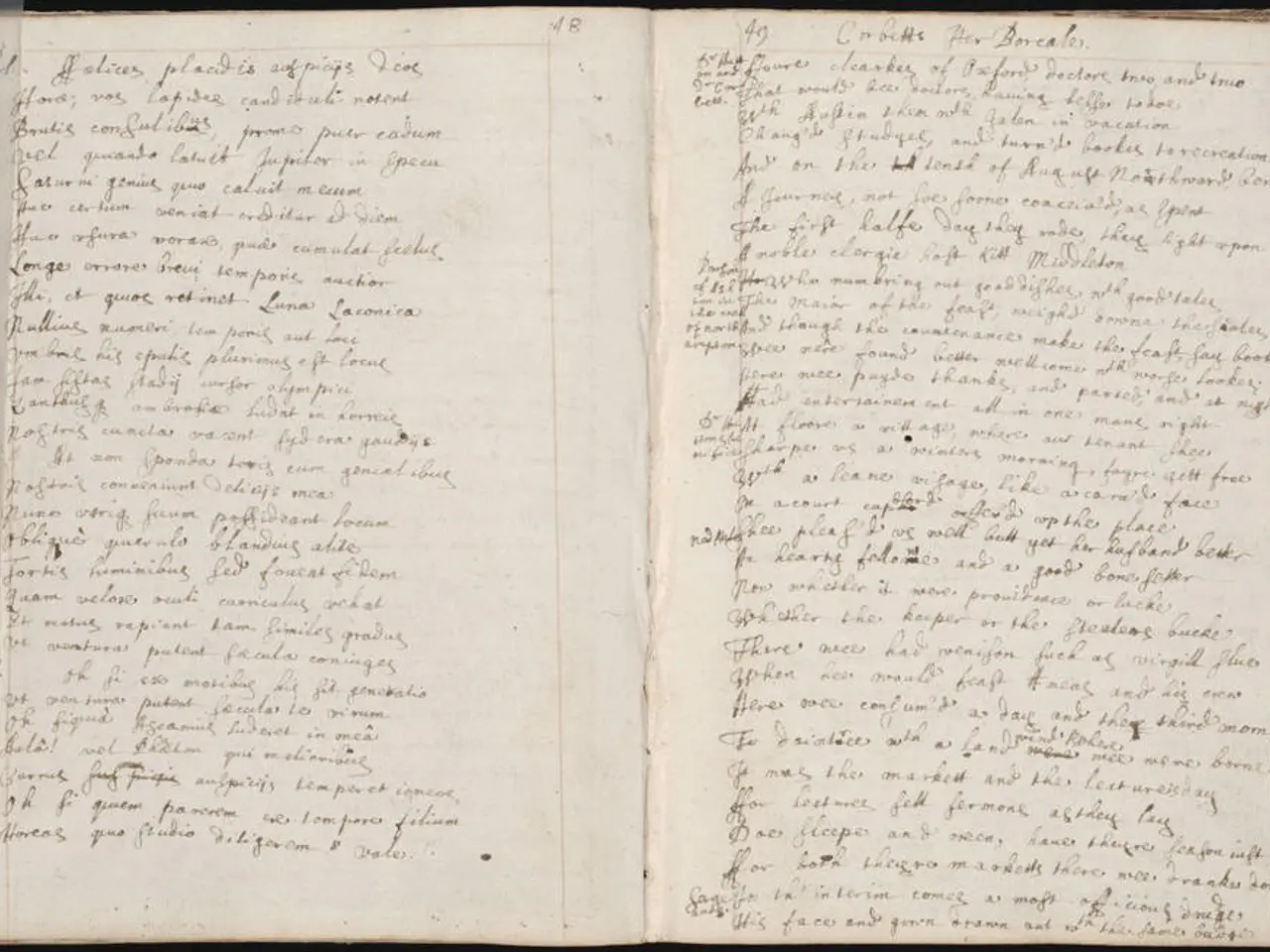Strategies for Influential Political Writing: Leveraging Language to Amplify Political Campaign Success
In the realm of political communication, crafting effective and persuasive copy is a crucial skill. Whether it's for social media, email, print, or video scripts, the length, tone, and format of political copy must be adapted to suit the platform.
Effective political copywriting serves multiple purposes: it communicates values, simplifies complex issues, builds emotional connections, and drives voter engagement across channels. The key to success lies in a balanced mix of emotional appeal and factual credibility.
Real-life stories can add authenticity to candidates, humanising them, and making abstract policies more relatable and memorable for voters. Phrases like "Join Us," "Donate Now," "Vote Today," or "Take Action" create urgency and encourage specific voter behaviour.
Political copywriting is a strategic use of persuasive language to influence voter opinions and drive action in political campaigns. However, it's essential to avoid vague language, overpromising, aggressive negativity, inconsistent tone, or ignoring the intended audience's mindset.
Data and analytics play a significant role in political copywriting. They can reveal what messages resonate, which headlines perform best, and how different voter segments respond, allowing for refined messaging.
The roots of political copywriting lie in using persuasive language to shape voter opinions, promote candidates, influence public discourse, and motivate actions through written content. It is a unique form of political communication aimed at convincing people to vote for a candidate or political position by creating messages that connect with voters.
Slogans capture the essence of a campaign in a few powerful words and serve as memorable rallying cries for supporters. The tone of political copy should reflect the campaign's identity and audience, whether confident, empathetic, urgent, hopeful, or bold.
By being honest, clear, and focusing on shared values, political copy can persuade ethically. When writing for undecided or swing voters, neutral, fact-based, and benefit-focused language that addresses concerns and builds trust is advisable.
In email campaigns, a strong subject line is crucial. Personalising the message, maintaining a clear narrative, and ending with a compelling call to action are key strategies. The output should be clear, emotionally charged, action-oriented, and aligned with the campaign's core message.
In conclusion, mastering political copywriting is an art that requires strategic thinking, emotional intelligence, and a deep understanding of the audience. It's a powerful tool in shaping public opinion and driving voter engagement.
Read also:
- United States tariffs pose a threat to India, necessitating the recruitment of adept negotiators or strategists, similar to those who had influenced Trump's decisions.
- Weekly happenings in the German Federal Parliament (Bundestag)
- Southwest region's most popular posts, accompanied by an inquiry:
- Discussion between Putin and Trump in Alaska could potentially overshadow Ukraine's concerns








